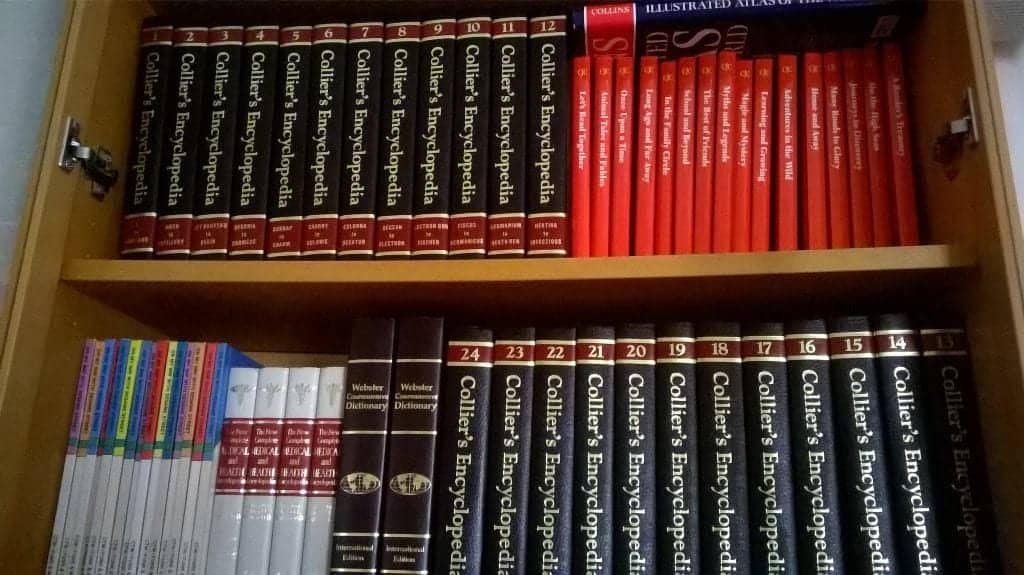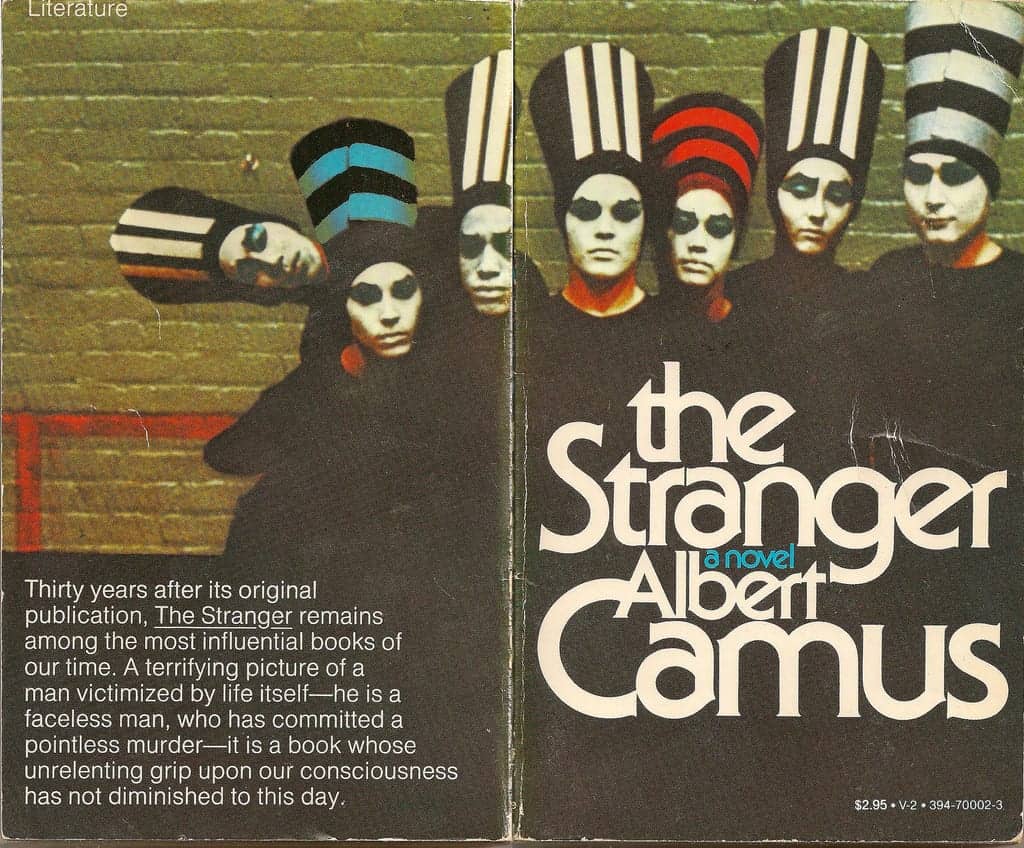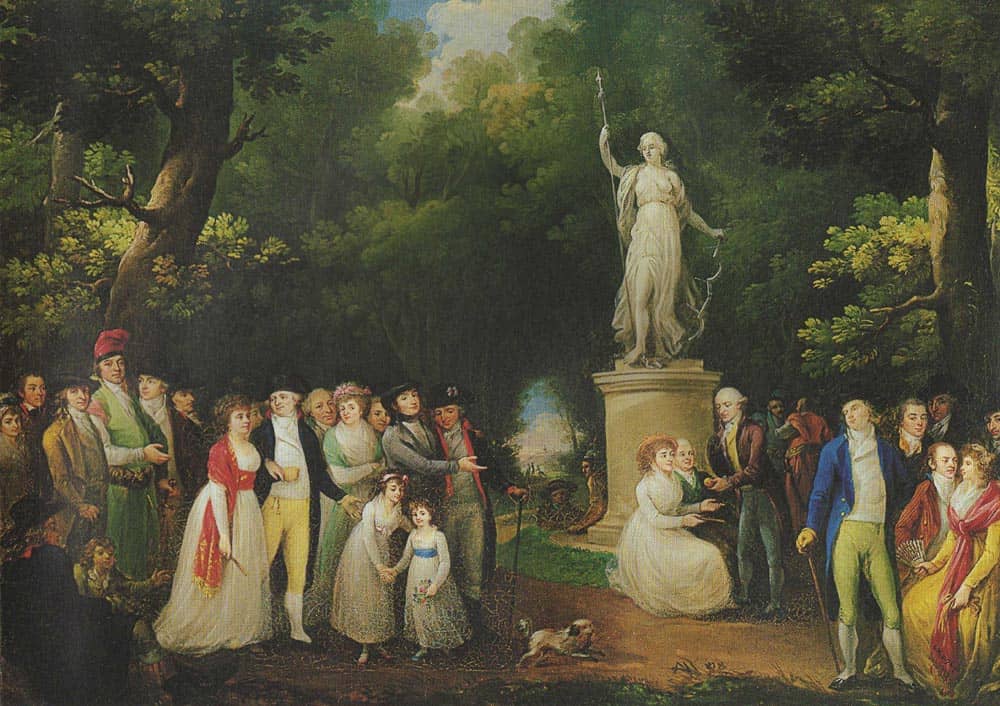Podcast: Download
Subscribe: Apple Podcasts | RSS
 If you want to know how to live an interesting life, stop missing the big and important details.
If you want to know how to live an interesting life, stop missing the big and important details.
You might well develop the ability to quit your job and do whatever you like for the rest of your career.
But that’s not necessarily going to make your life more fulfilling.
No, not because some researchers have concluded that money can’t make you happier. It most certainly can.
The point is that being happy isn’t necessarily interesting.
And to be more interesting means feeling excited and alive.
I’ve been on this quest myself. I temporarily dropped out of high school when I was younger precisely because it wasn’t interesting to me.
Later, I went to York University where I completed my PhD. Then I won a Mercator grant and taught in Germany for several years.
The difference was making sure I knew how to make my life interesting, even when certain aspects of it were a slog – such as making myself return to highschool.
On the basis of all these experiences, here are my best tips as someone who has thought a lot about life and its relationship to keeping mind and memory sharp and interesting.
How To Live An Interesting Life In 6 Steps
As we begin, I suggest taking some notes and answering in writing one simple question:
What is my impossible dream?
If it’s learning a language, write that down.
Or if it’s traveling the world, starting a business or something personal like memorizing lots of poetry, write that down.
No matter how impossible your dream might seem, you’ll make your life much more interesting simply by capturing it on paper.
Do that first, and then let’s begin.
1. Be The Driver Of Your Education
The problem I faced in high schoool is that someone else was in control of my education.
That’s why I dropped out. I wanted to direct my own interests so that I could feel excited about the things I was so curious about.
So, without dropping out of high school, I suggest that you explore ways to take the reins of your own education.
But what does that even mean?
To keep things simple, let’s consider two main forms of education:
- External Driven
- Self Driven
The first is the kind of education where you show up when you’re told and sit where you’re told. You even eat when you’re told during recesses built into a schedule that repeats daily.
Sounds kind of like prison, doesn’t it?
Prison? It Might Even Be Worse!
Not only do you have all kinds of pressures on your time when the education you undergo is externally driven. You’ve got people telling you what to learn.
Think about that:
What. To. Learn.
Oh no, no, no.
No and a thousand times no. That’s not the path to an interesting life.
Worse, there are two kinds of externally driven education:
- Minimal guidance
- Maximum guidance
Minimal guidance is actually not too bad. It gives you more space for deliberate practice, a key part of thinking for yourself and developing a wide variety of skills.
Maximum guidance, on the other hand, involves constant attention, checking in and a lot of “do as I do,” instead of getting the benefit of working out a lot of what needs to be learned on your own.
For some people that approach will surely work. But for must of us, probably you want instead is to be the manager of your own intelligence.
With that point in mind, let me tell you the more complete story of how and why I dropped out of high school in Grade 12.
There’s a lot of detail surrounding this decision and some of it ain’t pretty.
But sticking to the facts (and just the facts), I thought school was such a drag that I decided to stay home and read Collier’s Encyclopedia.
Each morning I would leave home. But instead of getting the battered yellow school bus into town, I would hike up into the mountains. For months I experienced the Fall transform into Winter and then Spring from up above the highway where I would wait for my mom’s car to pass by.
It sounds like something out of Hitchcock’s Psycho, I know, but as I was watching the highway waiting for mom to go to work, I was listening and learning.
No, not listening to Heavy Metal. Not pop. Not even soft rock.
Instead, I was listening to the CBC on my fat yellow Walkman. At that time, Peter Gzowski, a.k.a. Mr. Canada, was the host of Morningside.
Over the course of the year, I got virtually a Ph.D. in Canadian culture, history, politics, literature and the arts. I also heard interviews with important people from around the world. Without a doubt, all of that listening also helped me hone the focus skills so necessary to success across the many stages of life I had yet to encounter.
True, a bear might have mauled me while I was up wandering around in the mountains. I did have a few close encounters with moose and deer and even saw a bobcat that put the fear of God into me. But the danger of exploring nature on my own while learning through the magic of radio was worth it.
And after a few hours of Morningside, I would head down the mountain and make myself some hot chocolate. With a steaming cup beside me on the coffee table, I would then sit in the same rocking chair I was nursed in and read the Encyclopaedia.
It was like being nursed all over again, this time by the knowledge my parents had invested in when they ordered the Encyclopaedia for our family, one volume at a time.
These days we have Wikipedia. But back then, if you wanted to know about the world, it cost a lot of money. I remember my mom talking about saving for the Encyclopaedia year after year. She cut dozens of coupons from the newspaper so she could save more and complete the set.
It took about three years and after that, she kept up with the yearly updates for at least another three.
And this was all before I was old enough to read anything more complicated than Roald Dahl’s Charlie and the Chocolate Factory. (Come to think of it, that story is rather complex …)
It was a lot of fun reading through Collier’s Encyclopedia.
And educational.
When I finally did return to complete high school, I knew so much about the world that …
School Was EVEN MORE Boring!
But that was fine. Because I knew about all kinds of books I wanted to read.
So whenever I could, I would still skip school and take out a notebook I’d kept and look for all the books I’d learned about in Collier’s.
I would go to the Kamloops Public Library and check them out. While everyone else was spending weeks struggling through A Separate Peace by John Knowles, I was reading:
* The Stranger by Albert Camus
* 1984 and Animal Farm by George Orwell
* Demian by Herman Hesse
* The Metamorphosis by Franz Kafka
* Crime and Punishment by Fyodor Dostoyevski
… and much, much more.
The point of all this is that I was practicing, without even realizing it, the art of self-driven education.
Of course, I’m not suggesting that anyone quit school, skip school or do anything like that …
But I am suggesting that you won’t get nearly as intelligent as you deserve to be if you learn only what you’re told.
So What Can You Do?
If you’re told to read a Shakespeare play, read the play and follow it up by reading another.
Or look up a book about Shakespeare and read a play by one of his contemporaries (I recommend the zany John Webster). You can also use some of the tips for combining textual analysis with mnemonics shared by Ashley Strand on this episode of the Magnetic Memory Method Podcast.
Of course, not all learning goals revolve around words.
If you find math difficult and boring, find a book on mathematics that combines words with straight-up formulas. And see if you can tackle the idea of math from another angle, such as reading biographies of mathematicians. Khan Academy has math courses you can take, or you can follow inspiring math teachers like Robert Adhoot of Yaymath.
And when you find an author or an online teacher you like, stick with them. You can learn a lot by seeing how people develop over time.
You’ll also learn a lot about how successful people tick when you follow them over longer periods of time. This point brings us to my second suggestion.
2. Reverse-Engineer People You Admire
(Just So Long As They Aren’t Creepy Weirdos)
The world is filled with people who have either lived or are living exciting lives.
That doesn’t mean they led easy lives. There’s no such thing and living without challenges would probably be even more tedious than high school.
What you want to look for when studying the biographies of other lives are:
* How they explained their desires, goals and wishes
* What actions they took to do great things
* How they coped with suffering
* What they did to keep themselves expanding
* How they dealt with their historical circumstances
* Who they knew and what they did with their friendships and relationships
There’s so much more to pay attention to, but these are a good start.
Why Do This?
Because life starts to get serious when you act and think about who you are and what you want to do.
And to truly develop a unique profile and create the space needed in your mind to become whoever it is you’re going to become, here’s what I suggest:
Develop the ability to think and feel as others have done so you can better imagine your preferred version of the world. That way, you’ll stand a greater chance of realizing your personal vision.
When you study others, you’ll experience a diversity of ideas that will train you to pay attention to what everyone around you is doing.
It will also help you get past the negative habit so many have of rejecting differences.
Remember, there are no differences as such. Everything is part of the world. And as long as that is true, everything in the world is part of you. And that means everything and everyone applies to you and your life.
If you don’t like reading or care to develop a re-reading strategy, you can also watch biographies. For a super-interesting learning exercise, you can pick a single actor and watch as many films starring that person as possible in chronological order.
You can choose actors who are good at portraying different characteristics and actors who just seem to be playing themselves over and over.
Either way, you’ll notice patterns of consistency and difference. And like a wine expert, you’ll start experiencing all kinds of different shades of flavor you never noticed before.
Next, move from hanging out with books and movies to taking a memory course that helps you remember everything you discover at a deeper level. Here are some online memory courses that I think are worth your consideration.
3. Toss Social Inertia From Your Life Forever
Whether you’re an introvert or extrovert, it’s easy to fall into the trap of seeing the same people all the time.
That’s no way to revolutionize your life and keep it revolutionizing.
So as you’re finding interesting biographies and adapting ideas to your life, hunt for advanced people with whom you can share an environment. (But not in a creepy way …)
Find the people who have the characteristics you want and enter their circles. Don’t be creepy about it. Just identify someone and ask if you can have 20 minutes of their time to ask some questions. Then ask them who else you should talk to continue your education.
Do this and you’ll have an unending stream of new contacts and interesting people around you. As a result, you’ll experience so much more in your life. And you’ll always have interesting things to say to the new people you continue to meet.
Plus, if you visit these people in their homes, you instantly have more Memory Palaces. You can also meet them in cafes or restaurants you’ve never visited to increase your awareness of your city and its offerings.
All this will help you develop …
4. The Most Important Skill In The World
In a world, the most important skill is communication.
There’s no point in being more interesting if you’re no good at speaking. Or at least writing. But even writing is best when it starts in written form.
Either way, at some point, you’ve got to learn to control how words come out of your mouth. You get that practice by … (gasp!) speaking with people.
You can also attend Toastmasters meetings to get good at giving presentations, start a podcast, speak your mind on YouTube and develop yourself further as a writer. In my experience, there’s a perfect circle you can experience. The more you write, the better you’ll get at speaking which in turn makes you a better writer.
To get good at writing, start with the high school newspaper, writing letters to the editor, regularly updating a blog or just by posting on Facebook to explore your ideas. I’ll never forget when I saw my name in print as a teenager. Writing a letter to the editor of our local newspaper was all it took, and even in our online era, it’s still possible to practice writing and presenting your ideas in this way.
By studying all those successful people and learning to communicate with them, you’ll also be orienting on success.
This will help ensure that your life isn’t controlled by external circumstances. You won’t fall prey to the strange idea that certain times are good and particular periods of history are bad.
Here’s the only thing about time you need to now:
Times Change …
Your job is to adjust.
To be flexible.
To be adaptive.
To be agile, and if necessary, defensive.
Above all, you want to develop awareness of everything around you that you possibly can.
Because at the end of the day …
The way you succeed has little to do with the ways of the world. It has to do with how you react to the way the world changes.
And you always want to ask …
What advantage can I take of the present state of change?
It’s a compelling question and the best way to prepare for the times when you’ll need to ask it is to …
5. Live Like A Scientist
Scientific living means being measurable, a point made by my friend and fellow memory expert, Jonathan Levi.
You can measure everything down to what you do to be productive and make good use of your time, to measuring your testosterone levels. You can even measure and optimize the two different kinds of dopamine that are useful to have in balance for learning and remembering more.
Measuring your activities will help you see where you’re strong and where you need to improve. The best part is that, because you’re studying so many other people, you’ll see how you can do more of what works, and how you can do things differently.
Track everything in a journal, diary, Google Spreadsheet, in Evernote or whatever you prefer. Use whatever tool makes it easy for you to see where you are, where you’ve been and where you’re going. For more on journaling for better memory, you’ll love what memory athlete Johannes Mallow does.
By living more scientifically, you can develop processes and systems that enhance your life, across your life.
For example, I have systems that tick along no matter what happens on CNN:
* Writing every day
* Putting out a weekly podcast
* Replying to Magnetic Memory Method members 1-2 hours a day
* Theatre group once a week (when in season)
* Other regular courses
* Monday and Friday mornings at the gym
And the best part of all this activity and tracking is that …
It’s Easy To See The Holes In The System
For example, my activities are all fine and dandy, but looking them over, it’s clear to me that I’m missing out on music. Now I know that I’ve got to schedule more time for my memorize Bach on bass habit. Popping Bach into my memory used to be a huge part of my week, and now it’s faded almost to nil.
The important point here is that you want to develop “sticktoitiveness.”
The ability to stick to it is pure gold. So many of us (including me) get so distracted by the next bright shiny object that we need systems to keep ourselves on track.
Sticking with the program is important because without consistency, we never wind up doing anything long enough to see results.
And at the end of the day …
It’s All About The Results
That’s why it’s so important to stop and check in with yourself and your stats.
And stop searching for the easy path. That’s one of the quickest ways to fail. In reality, finishing a course you’ve started or completing a project from beginning to end IS the easiest way to get from point A-Z.
Success happens when you bring precise implementation to the game. I’m talking about dedicated practice, which is as true to memory development as it is to any task.
Stick with whatever you’re doing. Experiment with it. Study every angle and explore every corner.
Do that and you won’t need memory techniques. The stones will be set and the things you’ve learned will be impossible to forget.
Finally, there is one point that rules supreme:
6. Have Confidence In Yourself
Not only do you need to have confidence in yourself. You need to have confidence in the things you’re doing. This is why, for example, completing courses and finishing books you’ve started is so critical.
We live in memory. We thrive or fail by what we’ve done in the past. The more good things we’ve done, the more positive experiences we have to build upon.
That said, if you have weaknesses in your past, perhaps even terrible experiences …
Cut Out The Woo-Woo
One of the fastest ways to undercut your own confidence is to follow nonsense beliefs.
I was very fortunate to have read Why People Believe Weird Things early in my undergraduate university career. This incredible book by Michael Shermer helps you cut through the nonsense and develop critical thinking skills.
What are some of the pseudoscientific nonsense beliefs I had to cut out of my life? The so-called “Law of Attraction,” for starters, and the “creative visualization” it teaches.
To be fair, this line of belief comes with a few ideas worth exploring. But those good ideas are found in more scientifically valid literature too. We discussed some of those sources recently:
As I mentioned in this presentation, the “Law of Action” creates attraction naturally. No beliefs needed.
There Is No Reason To Let The Darkness Control Your Future
If you just make the shifts needed to put yourself in alignment with others, your unique desires and the habits and patterns needed to achieve success, all the pieces will fall together.
You’ll see the patterns you noted in the lives of others emerge in your own life. You won’t let yourself get bullied out of accomplishing your dreams. You’ll be a transformer. An influencer. A true human being who cannot help but live an interesting life.
So what do you say?
Are you ready to get out there and living with more authenticity, integrity and focus on the things that matter?
Make it happen!
Related Posts
- 3 Simple Exercises That Make Your Life Worth Remembering
Everyone has a life worth remembering, but not everyone spends time optimizing their daily experiences.…
- 11 Benefits of Critical Thinking That Rapidly Improve Your Life
Critical thinking provides so many benefits. But did you know there's more than one kind…
- Memory Improvement Techniques For Kids
You're never too young to get started with memory techniques









17 Responses
Great post Anthony! I like all the reminder references and it is inspiring me to add a little more “sticktoitiveness”, into my daily life, which is by far my single biggest problem.
Thanks for the reminder!!
Thanks for stopping by, Terence!
Yes, when we can master sticking with a project and following through to the end, amazing things start to happen in our lives. As Reba McEntire sings, “you gotta have a little want to.”
I think I’ll add that song to this page as a further resource …
So well said Anthony. This is wonderful inspiration for me this morning and Reba’s song is a well chosen conclusion. I’ve made a daily schedule myself lately which stares at me from a main wall, waiting to get filled as I go along.. Every day I check in what’s done and leave out what’s not done. This way I have a clear vision on my actions towards my desired goals. It’s quite interesting how it helps stick to it. Thanks again for your words of wisdom. May you live the interesting life you design every step of the way! Marie-Berthe.
It’s still early here, in California, Anthony, and I’ve started the day off right by reading your post. Wow! Great information, and, even greater, WISDOM. Thank you.
I’ve glad this helped kick off a great day, Deborah! 🙂
Your post resonated with me.
loved article thanks for sharing personal
experiences. Helps put things into Proper
perspective for myself..
Thanks for great post.
Glad this resonated with you, Gabe!
Thank you for this post! This is really something that I needed right now. As a high school student I relate to your experience. Sometimes it drives me mad when I have to put so much time on learning something that doesn’t interest me. Tho lately I’ve been thinking that everything might be interesting for you, it’s just that…When you have a boring teacher, like really boring then it leaves you thinking that “Oh, well. History is a boring subject and after high school I will never put my time on learning that again.” We really need to be active to find the energy and craving to make studying interesting for ourselves. There’s so much exciting things and subjects in the world to discover.
Anyway, your post gave me motivation at a time when it’s really needed. When ever I feel that this is bull***t or that it’s too much, I’ll just remind myself that article and keep calm. No need to stress out, just keep going and do what you love and everything else with love, it will come back to you.
There certainly are a lot of exciting things, Kristel. We just need to find different points of entry and then almost anything can become doubly, if not triply (or more) interesting. Add love into the mix and all the better. 🙂
Very inspiring and valuable advice, Anthony. Many thanks for sharing this with us.
I know that it takes a lot of time and effort to follow thorough with your podcasts and posts and more than “a little want to.” I, for one, appreciate that effort.
Your story about the Encyclopedia reminded me of my own parents who also made many sacrifices to buy the entire Encyclopedia Britannica for us. I agree too that it was much more informative and enjoyable than school-learning.
Although to hand it to my high school that’s where I first encountered Camus. We read L’Etranger en francais, so on that other coincidence I’ll sign off! 🙂
So great that you read Camus in French and also had parents who made sure you had an Encyclopedia in the home. I think if I ever have kids, I’ll get the same set I use to have from Ebay or some place and have it kicking around for everyone to look through. That could be the basis for cross-referencing for more updated information on certain articles online.
What an abundance of vivid advice! In the sixties, my brothers and I were passionate with “Tout l’univers” an encyclopedia for juniors very well illustrated,that was realeased in magazines. All that stuff we learned by ourselves made the school curses far more interesting ! Thanks for recalling us to take an active part in our learning, whatever it may be.
Glad you liked this post and podcast, Josée, and many thanks for your comment. I’m so glad that you had something to educate you during the “dark days” of institutional learning. It makes all the difference in the world.
Dear Anthony, one of your bests podcasts and posts! Definetely lots of inspiration, tricks and tips and above all wisdom. You might have just made a present to all of your audience with ways of making the most of our lives, and that by itself is priceless!
“Class never ends” WOW so true and so compelling to lead a interesting life and deliver value to those around us. Is there any way to read your dissertation? Is it published on line.
Thanks so very much!
Thanks for the kind words, Camilo.
It’s funny you ask about my dissertation. The only place that I can find it using Google is in the Hong Kong University Library – for which one needs an account.
But I have it on an old hard drive and will do my best to dig it up sometime. It will probably make me wince to look at it, but who knows … it might be good. Maybe even good enough to salvage some stuff, rewrite and publish.
Thanks again for your comment and for asking about my dissertation. 🙂
Hey Anthony!
I can’t believe you dropped out of high school to go hike and read the Encyclopedia. What a bold move. I dreaded all 4 years of high school. Like you I thought it was boring. I practically stopped going, and picked up a few classes at the local community college (not sure they were much better).
I still love to learn though. And I’m a huge advocate of self driven education. I try to learn from successful people as often as I can.
I also love hiking. There’s nothing like it.
All of your other points are very insightful. Spend time with people who are similar to the person you want to become, learn to communicate, create systems and be measurable, be confident….
All good stuff.
Thanks!
Thanks for stopping by and commenting, Eli.
I think it would be cool to build dropping out into the school system. I suppose in some ways there are version of this when you can do work study. But an actual full year where you can direct your energies where you please would probably reward a lot of people well. It certainly couldn’t harm much, relative to the benefits.
The real trick would be in teaching self-driven education as an art. I believe that imparting mnemonics at an early age would probably be the quickest and finest way to do this. Do you have any plans to teach your kids memory techniques if you have them? 🙂